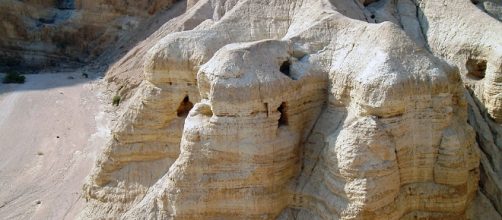The original find
The Dead Sea Scrolls are among the most important religious archeological finds in history. Initially discovered by accident in Wadi Qumran region of Israel, the scrolls contained religious texts older than almost any to date. Found in 1947 by a group of shepherds, they date from between 300 BCE to 33 CE -- making many older than Jesus himself, and some even contemporary with him.
The scrolls were found in a series of 11 caves, well-preserved thanks not only to the arid climate in the area and the caves’ protection from the elements but also due to the ancient practice of Genizah, which included storing manuscripts in clay jars to preserve them.
While many of the texts were indecipherable after two millennia of sitting around, several others were recovered and shed new light on both early Christian and Jewish practices -- many overlapping and coinciding with Old Testament books of the Bible.
A new discovery
It has been 70 years since the initial group of shepherds made the find, and scientists have pored over the area in subsequent years hoping to make more discoveries that could help us learn as much as possible about some of the most influential works in human history. Now it seems those scientists may have struck pay dirt as a twelfth cave has been opened and more clay jars were discovered inside.
So far, no new scrolls or manuscripts have been located within the new cave, but the evidence shows that there were some fairly recently.
A strap like those used to hold the scrolls together was found among the remains of the jars, as well as axes and picks that were likely used by whoever took off with the treasures.
It appears that looters struck some 60 years ago -- right around the same time archeologists were heavily involved in preserving the initial caves. While it’s a shame that the thieves got away with the scrolls, they left behind plenty of other buried treasure that researchers can study. Flint knives, ancient seals, made from carnelian, and a handful of arrowheads were among the artifacts recovered, many of which actually predate the scrolls and even written history itself -- humans have used the caves for some 10,000 years.
The race against looters
So while scientists are somewhat disappointed in losing what was likely a new batch of scrolls (evidenced by a blank piece of parchment being readied for inscription), the find is still a boon for those hoping to understand human history. But they also recognize that they need to be first on the scene if they hope to preserve history from plunderers.
"We are in a race against time as antiquities thieves steal heritage assets worldwide for financial gain,” says Director General Israel Hassan of the Israeli Antiquities Authority. “The State of Israel needs to mobilize and allocate the necessary resources in order to launch a historic operation, together with the public, to carry out a systematic excavation of all the caves of the Judean Desert."

